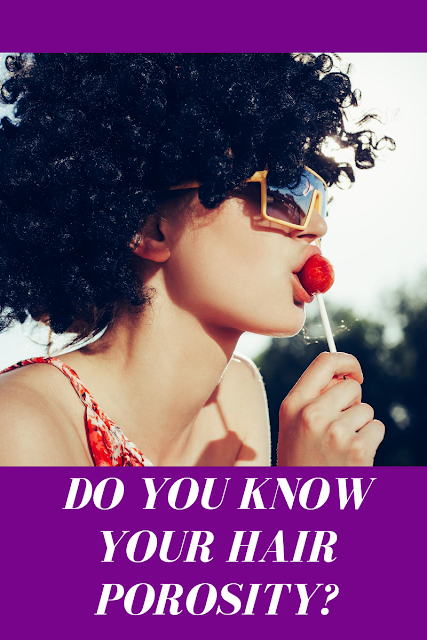What do you know about hair porosity?
So I’ve been natural for about six years. I still stand by my Five Tips for Newbie Naturalistas but there is one other thing that I wish I had done sooner. I wish I had taken the time to learn more about hair porosity because that would change the way I cared for my hair.
So what is porosity?
Porosity refers to the way your hair absorbs and holds on to moisture. Your hair’s ability to grow and retain length also depends on its moisture retention.
My hair has had it’s tumbleweed looking days and I always wondered why no matter how juicy it looked after nice wash, once I take the braids down the bush is something else. I also noticed that when I use certain products, it sits on the top or leave a whitish residue. Does that happen to you?
Well, that’s because I have low porosity hair. It’s not a terrible thing, it’s just that I have to use different products and my routine has to be changed a little.
To check yours, try this:
Get a glass with water and put a strand of clean hair in if it floats, you have Low Porosity hair. High porosity hair sinks to the bottom and medium hangs around in the middle.
Now that I know, I have to be mindful of the products I use and change my hair care routine.
I have to use more heat: I know, why more heat? The heat will open my cuticles so that the products will be easily absorbed.
Clarify more: I have always used diluted apple cider vinegar as a detangler and now I’m learning, it was a good choice. I can now use other things like an actual clarifying shampoo or
Less protein-packed products.
Use less coconut oil. Bummer, I know, because coconut oil is the holy grail of hair growth. Luckily, there are other options, like grapeseed oil, almond oil, and jojoba oil that works best with low porosity hair.
I also just learned that the brand Curls has products that are specific to porosity.
If you have high porosity hair, your hair absorbs water and oils very easily but hardly retains the moisture and nutrient so your hair:
looks and feels dry
tends to be frizzy
tangles easily
is prone to breakage
air dries very quickly
absorbs products quickly
rarely looks shiny
You can:
Avoid sulfates, parabens, silicones, and sodium Laureth sulfates. These ingredients can pull a lot of natural oil from your hair. So read the labels.
Use only lukewarm water when you wash and condition your hair. Hot water may lift the cuticles and cause further damage.
Dry your hair with a cotton T-shirt. Vigorous drying with a towel can create friction and cause breakage. A smooth fiber, a cotton shirt can be more soothing and may help protect your hair from damage.
- Minimize heat styling. You can also use heat styling appliances on a lower heat setting and use a heat protecting product on your hair.
One of the craziest things is that we are only learning about these things so much later in life. I hope you find the info useful. Let me know if you've done the test and if it changed the way you care for your hair.





I've been natural for a few years now and I still don't know. I tried to do a porosity test but I'm not sure it was right.
ReplyDeleteWhat happened when you tried? Remember the hair has to be clean before you put it in the water.
Deletei used to be a naturalista until sometime last year when i decided to relax my hair.i never tried the porosity test though.
ReplyDeleteIt's a great thing to know, especially when you keep trying certain products and they just don't work as well you'd like. Let me know what you get.
DeleteI've never tried the porosity test before, but I will be very soon. It would help me get a better idea of how to better manage my, because sometimes I just don't want to deal with it.
ReplyDeleteI saw the light when I finally did the test. A lot of things finally made sense.
DeleteAlthough I’m not natural , some of these tips work for relaxed hair.
ReplyDeleteYes. My sister has relaxed hair and she tried it too.
DeleteI know I have high porosity hair. It needs so much moisture.
ReplyDelete